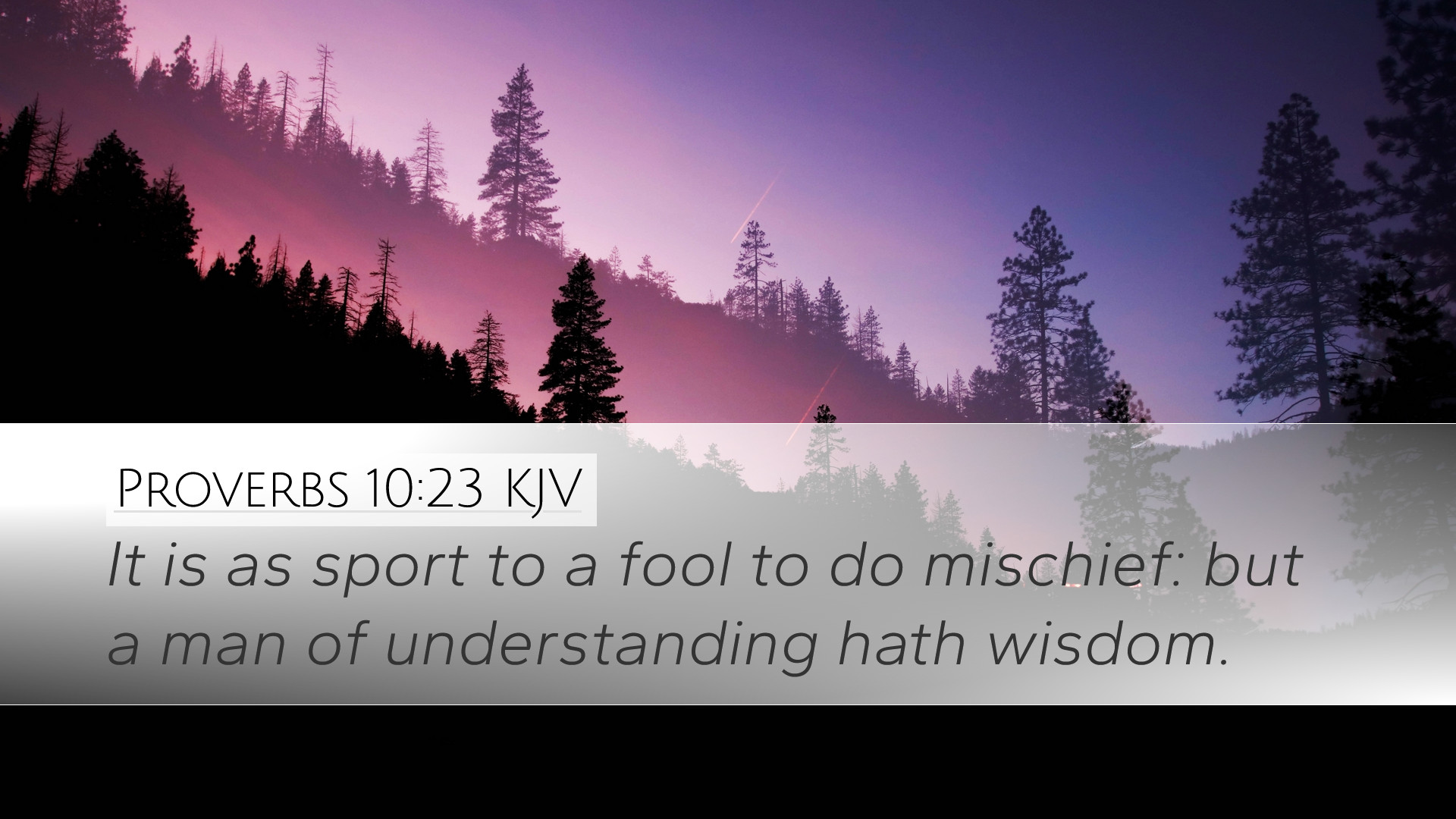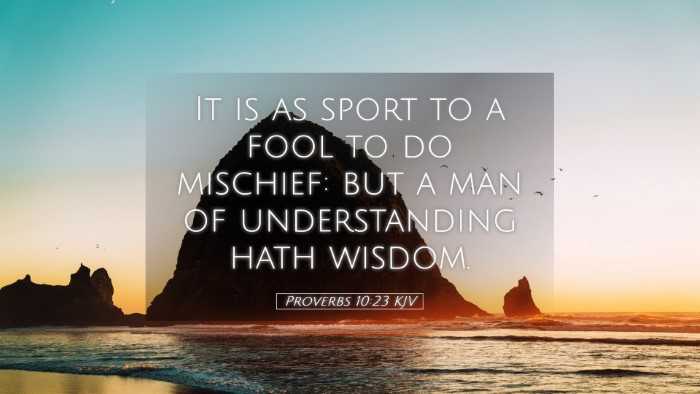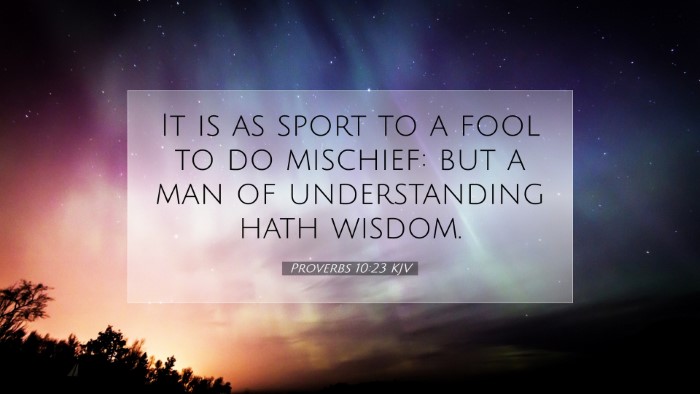Commentary on Proverbs 10:23
Verse: "It is as sport to a fool to do mischief: but a man of understanding hath wisdom."
Introduction
This verse from Proverbs offers profound insight into the contrasting natures of fools and the wise. The simple statement serves as a reflection on human behavior and the moral fabric of society. This commentary integrates thoughts from prominent public domain theologians, providing a comprehensive understanding of the verse aimed at pastors, students, theologians, and Bible scholars.
Analysis of the Text
Proverbs 10:23 contrasts two types of people: fools and the wise. A fool finds pleasure in wrongdoing, while a man of understanding recognizes the value of wisdom.
1. The Nature of Fools
Matthew Henry notes that the fool delights in mischief, treating it as a sport—an activity purely for pleasure rather than moral consideration. This characterization underlines the recklessness of folly, which lacks the discernment of righteousness. Henry suggests that "foolishness makes light of sin, and therefore it is enjoyable to those who are devoid of understanding".
2. The Wisdom of the Understanding
In contrast, Albert Barnes emphasizes that a man of understanding is not swayed by momentary delights in wrongdoing. Wisdom involves a deeper appreciation for the potential consequences of one's actions. Barnes explains that "the sound mind weighs the outcomes and realizes that true fulfillment comes from making righteous choices". Understanding aligns closely with prudence and long-term thinking.
3. The Role of Motivation
Adam Clarke explores the motivations behind actions. Clarke posits that "the motivations of the heart dictate behavior". The fool’s enjoyment of mischief arises from an absence of moral integrity, which correlates closely to a lack of understanding of God’s laws. This absence results in a perverse inclination toward unethical behavior.
Theological Implications
This proverb highlights the moral implications of actions in the context of God's righteousness. Understanding starts with a relationship with God; hence, those who pursue wisdom naturally move away from foolish pursuits.
1. The Consequences of Foolishness
Henry posits that engaging in mischief may bring temporary pleasure, yet it invariably leads to spiritual and moral decay. The Scriptures regularly illustrate that the enjoyment of sin is ephemeral and ultimately culminates in ruin.
2. The Blessings of Wisdom
Barnes asserts that wisdom brings lasting joy and peace. A wise person is aligned with God's will, which leads to fulfillment and ultimately affects their community positively. Understanding leads to righteous living and a fruitful life.
Practical Applications
The contrasting natures of fools and the wise have considerable implications for everyday life. Both individual behavior and broader societal trends can be analyzed through this lens.
- Individual Reflection: Believers are called to reflect on their actions and motivations. Are we engaging in pursuits that align with wisdom, or do we find ourselves drawn to mischief, overlooking the consequences?
- Community Influence: Churches and communities must cultivate environments that promote wisdom. It is essential to teach and exemplify wise living as a counter to the allure of folly found in societal trends.
- Moral Education: Leaders and educators have a responsibility to help impart wisdom. Emphasizing biblical principles and moral frameworks will encourage the next generation to choose paths of understanding rather than mischief.
Conclusion
Proverbs 10:23 serves as a poignant reminder of the choices one faces daily. Engaging in folly may feel like sport to some, but wisdom offers far greater rewards. When we understand the dichotomy between the wise and the foolish, we are better equipped to make choices that reflect God’s design for our lives. Each decision is an opportunity to align ourselves with the wisdom derived from understanding God's ways, leading to a richly fulfilling spiritual life.


